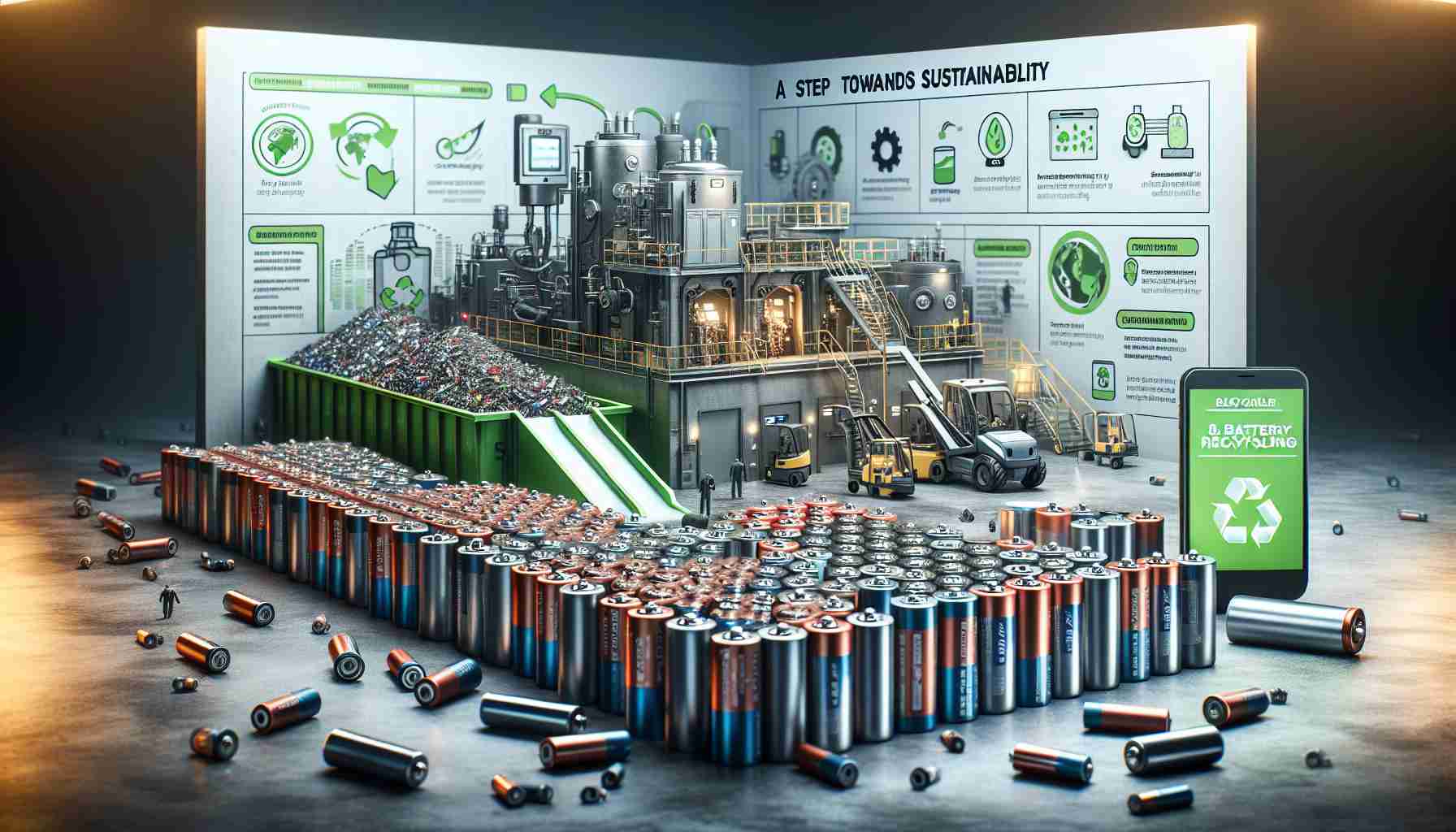The importance of battery recycling is taking center stage as stakeholders across various sectors join hands with the U.S. Environmental Protection Agency (EPA) in an endeavor to enhance sustainability. The EPA has initiated work sessions, set to commence in March, where battery manufacturers, nonprofits, local governments, and others can share their insights and experiences related to battery recycling.
During the Consumer Technology Association’s CES 2024 trade show in Las Vegas last month, the EPA extended an invitation to all battery stakeholders to participate in these sessions. The ultimate goal is to develop voluntary labeling guidelines, improved collection practices, and other tools that will contribute to more effective battery recycling efforts. Moreover, these initiatives will not only help conserve critical minerals but also make power sources more sustainable, thereby advancing the fight against climate change.
Rick Kessler, the senior advisor for implementation for the EPA’s Office of Land and Emergency Management, emphasized the need to strategize end-of-life approaches for batteries to mitigate potential environmental impacts. As the sessions focus on specific topics and groups of stakeholders, most will be conducted virtually. The EPA is yet to finalize specific dates, but interested participants can register for updates on the EPA’s website.
This move by the EPA marks a greater commitment to bolstering the United States’ recycling programs, with significant investments already made. Through the Bipartisan Infrastructure Law of 2021, more than $190 million has been allocated for grants dedicated to infrastructure development, management, and public education. These initiatives indicate that the EPA’s efforts are just beginning, as it strives to address the challenges posed by battery sustainability.
Nena Shaw, the director of the EPA’s Resource Conservation and Sustainability Division, expressed her excitement about the progress made in battery recycling over the years. From being a marginal issue in 2018, battery sustainability has now taken center stage. This shift reflects a growing awareness about the importance of effective recycling practices and their role in creating a more sustainable future.
In conclusion, the EPA’s upcoming work sessions will serve as a crucial platform for collaboration and knowledge sharing among battery stakeholders. By working together, we can pave the way for sustainable battery recycling practices that not only contribute to the preservation of critical minerals but also mitigate the environmental impacts associated with improper management.
FAQs on Battery Recycling Initiative by EPA
What is the purpose of the EPA’s battery recycling initiative?
The purpose of the EPA’s battery recycling initiative is to enhance sustainability by developing voluntary labeling guidelines, improving collection practices, and creating tools to facilitate effective battery recycling efforts. The initiative aims to conserve critical minerals and promote sustainable power sources to fight against climate change.
Who is invited to participate in the EPA’s work sessions?
Battery manufacturers, nonprofits, local governments, and other stakeholders in the battery recycling sector are invited to participate in the EPA’s work sessions. These sessions will provide a platform for stakeholders to share their insights and experiences related to battery recycling.
Will the work sessions be conducted virtually or in-person?
Most of the work sessions will be conducted virtually, focusing on specific topics and groups of stakeholders. The EPA is yet to finalize specific dates for these sessions.
How can interested participants stay updated on the EPA’s battery recycling initiative?
Interested participants can register for updates on the EPA’s website to stay informed about the progress and developments of the battery recycling initiative.
What investments have been made in the United States for battery recycling?
Through the Bipartisan Infrastructure Law of 2021, more than $190 million has been allocated for grants dedicated to infrastructure development, management, and public education in battery recycling. These investments demonstrate the EPA’s commitment to strengthening recycling programs in the United States.
What is the significance of battery recycling in creating a sustainable future?
Battery sustainability has gained significant importance in recent years due to growing awareness about effective recycling practices. Sustainable battery recycling not only helps conserve critical minerals but also mitigates environmental impacts associated with improper management. It plays a vital role in creating a more sustainable future.
Definitions:
– Battery recycling: The process of collecting used batteries, disassembling them, and recovering valuable materials for reuse. It helps in conserving resources, reducing environmental impacts, and promoting sustainability.
– EPA: The U.S. Environmental Protection Agency is a federal agency responsible for protecting human health and the environment through the creation and enforcement of environmental regulations.
Related Links:
– EPA Battery Recycling
– EPA Recycling Program
The source of the article is from the blog publicsectortravel.org.uk
